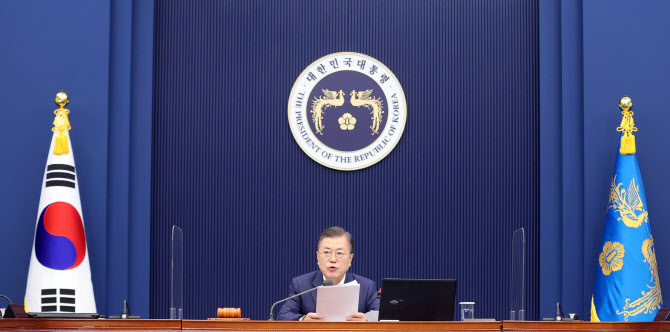|
The government held a cabinet meeting presided over by President Moon Jae-in on the 2nd and decided on the agenda of the’The 1st Additional Revision Budget for 2021′. President Moon said, “It is the largest of the four corona disaster subsidies,” he said. “I urge the National Assembly to discuss and deal with it quickly.” The party administration is planning to proceed with the additional processing of the plenary session on the 18th and execution schedule at the end of this month.
The countermeasures worth KRW 19.500 trillion consisted of an additional 15 trillion KRW and a fixed budget of 4.5 trillion KRW using this year’s budget. The supplementary plan consisted of △Emergency damage subsidies (8,100 billion won), △emergency employment measures (2.8 trillion won), and △prevention measures (4,100 billion won). If multiple business sites are operated, a maximum of 10 million won per person is provided. The subject is a total of 6.9 million, an increase of about 2 million from the third period.
Most of the additional financial resources were provided by issuing government bonds of 9 trillion won. As a result, the national debt increased to 965 trillion and 900 billion won. It is a scale of more than 305 trillion won in the new four years from 2017 when the Moon Jae-in administration was inaugurated (660 trillion 200 billion won). It is equivalent to a debt of 18.64 million won per capita (based on the population 58,290,023 at the end of last year). Hong Nam-ki, deputy prime minister of the economy and Minister of Strategy and Finance, pointed out that “the pace of debt growth is in no way reliable.”
The government office is drawing a line, but if it goes like this, the increase is inevitable. If you go like this, the symptoms are inevitable. Lee Sang-min, a member of the Democratic Party, is considering a new bill to establish a social solidarity tax. Lee Won-wook, a member of the Democratic Party, suggested, “Let’s not let future generations repay it by issuing government bonds, but let our generation solve it through tax increases.”
Myung-jae Sung, professor of economics at Hongik University, who will be inaugurated as the new president of the Korean Finance Association next month, said, “The increase in national debt is so fast that the possibility of a second foreign exchange crisis can not be ruled out.” , Oil tax and VAT should be raised to increase the general tax,” he emphasized.

